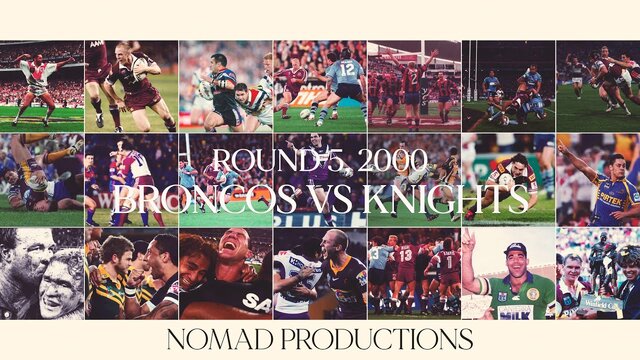- Thread starter
- #37
We're arguing two different things then. I'm not bagging the coaches' ability, I'm saying that the gameplan, the attack-orientated, high-risk, play-as-you-see-it style, will not translate to the NRL as much as people might think. Hence the comment about playmakers. Their skills might be perfect in the ISC where defensive lines are not as impenetrable, but not in the NRL. Defensive structures are far more rigid for that style to work, especially when you say something about losing 50 metres by running backwards in the hope that you can then score a 100 metre try. To do so would require high-risk plays and if it fails, you're gifting the opposition field position and a smaller, more skilled team will be no match for some regulation big men on your own line.
As for me being negative about the ISC, I don't know how to say this with tact, but it's inferior to the NRL. It certainly has its place, and I respect that it has traditions in Queensland going way back before the NSWRL invaded, but the harsh truth is its best relevance to the NRL and the Broncos (which is the topic of this forum) is as a feeder system and a second-grade comp for fringe first-graders. And when you say "ISC produced", that is why I can't take you seriously on discussions regarding the comp. "Produced" suggests it has been the defining factor in developing and advancing player's skills and abilities, which is simply not true for the vast majority of our players.
Tell me, how many of the players in our 17 played in the ISC without a Broncos contract? All I can think of is Reed and maybe Gillett IIRC. The rest of them were always contracted to the Broncos and were played in the competition when they were no longer eligible for the NYC or had progressed passed the standard of that comp and were being played against more hardened, older opposition as better prep for the NRL. Or to gain confidence or return from injury in an environment not as cut-throat. To suggest otherwise is just twisting facts.
Everyone knows it is the level below NRL; I don’t know why you’re stating this like you’re providing some sort of revolutionary insight. Shield cricket is below the standard of Test cricket- but it’s still great to watch and still produces great players and cricket. The QRL is pretty content with the role the ISC is playing and continues to evolve and get better. The fact they beat Penrith last year and won the Residents mean they’re doing something pretty right.
That’s not true of the current Broncos; Boyd (Bears), Glenn (Bears), Blair (Norths), Reed (Norths), Gillett (Norths), Stagg (Redcliffe), Garbutt (Easts), Ofahengaue (Jets), Parcell (Jets), Wallace (Norths), Dodds (Wynnum), Waddell (Souths) all have played for a ISC club before getting a Broncos’ contract. Five of which played yesterday. As well as all but one, having played ISC at some stage in their career.
Then of course you’re forgetting that some played for ISC clubs but didn’t get to ISC level before winning an NRL contract McGuire, Maranta, Nikorima and Molo played lower grades for Norths.
There is a whole big wide world out there before the NRL that yes is producing NRL players. I think you're one of those people that think players just morphed into NRL players one night and don't really think they had to come from somewhere. You do know ISC clubs have grades down to Under 16's U18's, Colts, Reserve grade?
Shane was clearly using hyperbole to make his point- I have never seen them run back 50 meters, his point was clearly we don’t buy into the whole he made 98m and he made 150m the second guy must be awesome. Roosters won a premiership with the worst completion rate in the competition for that year which is Shane’s point, you can be successful and play football without having to maintain KPI’s.
You've making the mistake of thinking it's ad lib football, it's not it is practised and rehearsed to get it right with a very specific tactic involved.
Ben and Shane aren’t focused on attack over defence; yesterday they scored 36 points but they spoke after the game in the press conference about the two tries they let in.
It’s a bit like trying to convince someone to like a music genre, pretty hard to do. If you like robotic, three up the middle for a second man play, kick to the corners we hit our 75% completion then that’s fine. I like watching football and skill.
September is the final frontier for Ben and Shane, they’ve made the finals four years in row now with their skills approach and not boring robotic football, they’ve impressed NRL clubs and coaches with their approach and football brains but be nice to top it off with some trophies.

